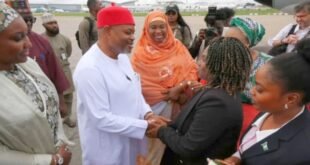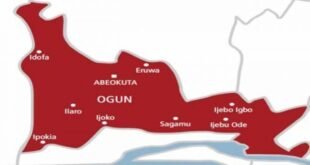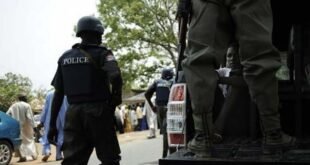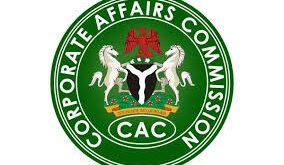Who will return Warri to his glorious days? A city that was once the pride of all Wafarians, now it is a shadow of itself, rusty and reduced with poverty aroma caused by the systemic decline with people with bogite for deprivation and squalor. Warri is allusively known as Wafi, making the people and residents of the city identified as Wafarians.
I was close to tears during my recent visit in which I visited the length and width of Warri, covering Deco Road, Okumagba Avenue, Okere Road, McCiver, Odion Road, Market Road, Cemetery Road, Iyara, McDermott Road, Warri-Sapele Road, Upper and Lower Erejuwa, Ajamogha, Esisi and Esisi. Warri Port. I stayed for over two months, the longest from my transfer to Lagos in 1984.
All I saw was an anguished and dying city with shattered dreams, narrowing hopes and decreased opportunities induced by capitals and economic disorders. It is a metaphor for youth unemployment, decrease aspirations and social chaos, in which people work only under a profound deficit limited by the rationed resources, due to the lack of new capital by investors.
In fact, Warri is suffocating from a serious economic dehydration, with all the spaces available in the face of buildings converted into small shops where people have engaged in small commercial activities and pos, making the streets seem like mini-markets. This has further worsened by the large number of Keke tricycles that exceed the population with a heavy noise emission. Even the dead have no peace in Warri since the entry of the only cemetery in the city was overcome by mechanical mechanisms and Keke Ticicles, leaving a small gate for entry.
How did such a lively cosmopolitan city attracted the global presence, including investors, hosted several remarkable national and international events, degenerated in a rural enclave with dilapidated structures? What went wrong and who created the casino who betrayed the values and ideals that the Wafarians once in unity and love once?
While it is easy to connect the stunted growth of Warri to the infinite ethnic rivalry between Itsekiris, Urhobos and Ijows, for posterity, it is also important to identify in a specific way, whose actions, directly or indirectly, have contributed to the frightening condition of the city, which led shame and embarrassment to the collective psyche of Wafarians.
First of all, Warri’s opposition as the capital of the state of the delta to creation by the leaders of Itsekiri, led by his real majesty, the Olu of Warri, Atuwatse II, has done more badly to the general good of Warri and establishing the city backwards. The result of the deficit made the reason designed to protect the ethnic interests of Itsekiri in an insignificant way. What is the gain of this support in the context of development, in addition to the fear of the domain of the urhobo and the need to contrast it? This was an obvious delicate and no quantity of rationalization can justify the mess that Eclisso Warri has. It was a calculation error. Sacrifying the progress of the city on the altar of close ethnic interest was a tragedy.
Unfortunately, the former military president, Ibrahim Babangida (Ibb) further complicated the question when he has not managed to demonstrate objective governance, exploiting the disapproval of Itsekiri towards Warri as the capital to illogically sit the capital of the state of the Delta in Asaba, in the city of his wife. It was the peak of absurdity in the decision -making process and a bad leadership study. If the deficit of ethnic trusted in Warri had been hit and ethnic groups unite to ask Warri as capital, the city would have been better transformed with a typical infrastructure advantage of a modern capital, attracting foreign investors, for the benefit of all.
Secondly, the infinite dispute on the ownership of the Municipality of Warri between Urhobos, Itsekiris and Ijows, over the years, have continued to promote ethnic animosity and discord, contributing immensely to the city’s retracttyness. Those who have started this fight have passed since then, without adding any value to their respective ethnic groups. Unfortunately, this bitter ethnic rivalry is transmitted to subsequent generations, which have continued in a crazy way in this trajectory to spread hatred, rather than living in harmony as neighbors, to achieve lasting peace and development in Warri.
It should be noted that these property statements are exercised uselessly, since one of these ethnic groups can practically move each other to take the physical possession of any home. For example, just as it is practically impossible for the urhobos to evict the itsekiris from Okere, it is not also realistic for the itsekiris expropriation of the ijws of the land of Ogbe-Ijaw.
And so, the judgments and articles of the Colonial and Post-Colonial Court of Guarditore as proof of the property, is insignificant and waste of energy. The three ethnic groups must bury their pride and their ego and live together peacefully like Wafarian, linked by the common cultural affinity, so that Warri can experience peace and progress again.
Thirdly, ethnic leaders who encourage and incite directly or indirectly their young people to resort to violence and, sometimes, bring weapons to threaten, destroy or kill their neighbors on earth, have nothing to earn in addition to misery and poverty. Ironically, they are the innocent children of the poor who are used for such a senseless conflict, while the children of the rich, enjoy comfort in a safe refuge in Lagos distant, Abuja, London, USA or Canada.
In addition, the parents of most of these youth credulons used to perpetuate these crimes, do not have an ancestral root and ownership in the municipality of Warri. Destruction and chaos leave only in their path, economic decline, unemployment, anguish, suffering, difficulties and poverty, since investors will flee with their capital from a hostile environment, as shown with the exit of numerous companies in the city.
The lessons should have been learned from the Ijaw-Etsekiri conflict which lasted from 1997 to 1999 for the headquarters of the local government of the south-west of Warri. At the end of that war, both sides counted only losses, no benefit, no addition of value and no reward. Unfortunately, the companies that were up to that moment of prolonged fresh capitals to Warri, moved to other cities, taking the lack and despair to Warri and its surroundings. There must be no repetition of such a senseless ethnic war, since Warri may never survive a second experience.
The effect of Ijaw-Itsekiri’s struggle led to the exit of companies such as Pan Ocean, Schlumberger, Halburton, Shell Petroleum Development Company, (SPDC), Elf, Conoco-Phalillips, Agip, Weafri, Nisco, Globestar, McDermott, DBN, Wesco, Hercules Offshore Nigeria, Nigeria, Nigeria Dredging, and Marine, and Dunlop. Others include Saipem, Sismograph Services Limited, Snamprogetti, Dowell, Anadrill, Baroid, Santafe, Ocepeering, Kingsway, Leventis, West Minster Dredging, John Holt, Scaa, Glorylux, United Afrian Combaby (UAC), Mandillas, Nestail together with Maritime and Shipping Surms, encountered inside the doors Nigerian, Warri.
Companies not only have gone with their investment; They also left a high unemployment rate of about 80 % in Warri. With the exception of Chevron Nigeria Limited, and perhaps, recently, of tuning Security Services Limited, through which new funds are injected into the Warri economy, the conditions of the city would have been catastrophic.
In the fourth place, those who engage in the collection of “must” (development) as a prerequisite for the start of the project and also, which forcefully ask for the employment slots and contracts by the companies, have also contributed to the bad conditions of Warri. For their actions, companies, including small businesses and individuals, are frustrated and discouraged by the establishment of companies in the city, thus aggravating the burden of unemployment.
In fifth place, the port of non -operational Warri also added to Warri’s economic difficulties. The ocean ships that used to be seats, the commercial interests of service in the nearby Effurun, Udu, Benin, Onitsha, Asaba and surroundings are no longer. This is further aggravated by the collapse of adjacent companies such as the Delta Steel Company, Owvian-Aladja and Warri Refinery and Petrochemical Company, Ekpan, who had a huge tribute to Warri’s life.
It is therefore essential for ethnic groups to redirect their energies to promote peace and unity, in order to restore investors’ trust. Ijows leaders, Urhobos and Itsekiris can also exploit their common cultural ties, as expressed in food, clothes, trade, history and festivals to increase the economics of Warri. For example, Warri’s cultural celebrations such as Agbassa Juju (Idju Owhurie Festival) and Okere Juju (Awankere Festival) can be strengthened and transformed into the destination of the main tourists, as part of the strategy to make great Warri again.
Dr. Mike Owhoko, analyst of public policies, author and journalist based in Lagos, can be reached on www.mikeoowhoko.com and followed on X {previously Twitter} @Michaelowhoko.
Stay forward with the latest updates!
Join the Conclaveng on WhatsApp and Telegram for notices of news in real time, rupture stories and exclusive content delivered directly to the phone. Don’t miss a title: Sign up now!
Join our WhatsApp channel
Join our Telegram channel
 JamzNG Latest News, Gist, Entertainment in Nigeria
JamzNG Latest News, Gist, Entertainment in Nigeria








